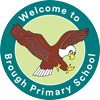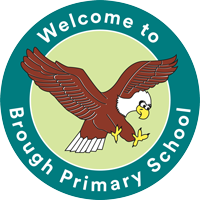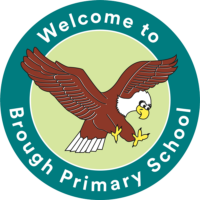Intent
Languages at Brough Primary School give the children the opportunity to appreciate and enjoy learning a language other than their own (French), and be inquisitive about other cultures and countries.
At Brough Primary School, our Languages curriculum ensures that all children are equipped with knowledge of French vocabulary and grammar. We will fulfil the requirements of the National Curriculum for Languages, whilst providing breadth and balance, which ensures the progressive development of skills such as acquiring, using and applying a growing bank of vocabulary – organised around topics.
We want all children to be confident linguists with an appropriate wealth of knowledge of vocabulary and grammar.
We want children to love languages and to be inspired to build on their knowledge and skills going forward at secondary school. We also want them to be prepared for potential future opportunities in French speaking countries.
Aims
The national curriculum for languages aims to ensure that all pupils:
- Understand and respond to spoken and written language from a variety of authentic sources.
- Speak with increasing confidence, fluency and spontaneity, finding ways of communicating what they want to say, including through discussion and asking questions, and continually improving the accuracy of their pronunciation and intonation.
- Can write at varying length, for different purposes and audiences, using the variety of grammatical structures that they have learnt.
- Discover and develop an appreciation of a range of writing in the language studied.
Implementation
In order to achieve high standards within Languages, we implement a curriculum that is progressive from Year 3 to Year 6 in speaking, listening, reading and writing. As well as meeting the requirements of the National Curriculum, our provision ensures that the children have the opportunity to be immersed in the culture and learn about what it is like to live in a different country. We do this through French days where the children can live like a French school child and adopt some of their routines.
The long-term plan maps out the experiences the children will receive in each key stage. It is written by the subject leader in consultation with phase leaders and other members of teaching staff. The subject leader provides medium-term plans for each unit of work ensuring that key skills, required knowledge and objectives are covered. This supports teachers with the development of lesson planning.
Impact
At Brough Primary School, we want every child to leave us in Year 6 having had the opportunity to apply their linguistic skills to a number of topics. The impact of these, and the quality of the provision they receive, is measured through the knowledge and skills they have developed and their ability to apply these to a variety of different topics.
Children will meet or exceed the progression of skills requirements in speaking, listening, reading and writing. Children will understand and respond to spoken and written languages and speak with increasing confidence, fluency and spontaneity. Children will write for different purposes and use a variety of grammatical structures.
We measure the impact of our curriculum by: –
- Discussing each aspect of the language with the children, learning about how they have been inspired.
- Moderation staff meetings when specific examples of work are scrutinised, with an opportunity for dialogue between teachers and the subject leader.
- Monitoring of taught aspects across the school to evidence progress.
- Assessing pupils’ knowledge and ability to apply this to later learning.
- Development of learning evidenced in topic books.


